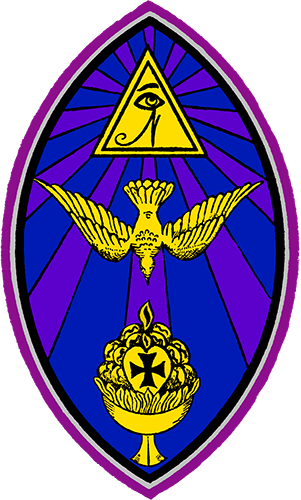
Ordo Templi Orientis
William E. Heidrick Memorial Library
A Memorandum Regarding
Liber CI
An Open Letter to Those Who May Wish to Join the Order
Liber CI sets forth Crowley’s vision for O.T.O. as of 1919, now eighty years ago. Many of its provisions are applicable and operative today. Some, such as those regarding Profess-Houses and special universities, belong to the future. Still others are, for practical reasons or due to changes in cultural paradigms, simply obsolete.
In the interest of clarity, I offer the following list of policy differences between the OTO envisioned in Liber CI and the OTO as it actually exists today in the United States.
OTO does not now encourage its members to treat those outside the Order as inferiors who possess no rights. While we do encourage members to do their part in recruiting new members, we do not expect or encourage them to aggressively proselytize among their friends, employers, and any wealthy or powerful acquaintances they may have. We encourage community and all levels of social interaction between OTO members, but they remain free to engage in personal relationships and marriage with whomever they choose, and to employ, work for, and do business with whomever they choose.
At this time, we do not have official Profess-Houses or special educational institutions, though we look forward to a day when we will. We do not have special facilities for the care of children or expectant mothers, nor do we accept children into any special training or educational programs. While we offer what assistance we can to the families of members who suffer bereavement, we do not require our officers to adopt the orphaned children of members.
We no longer hold ideas of “the frontal duty of womankind” as points of doctrine. Rather, we emphasize the individuality of all women and all men.
Lodge Masters are encouraged (as are all members) to offer hospitality to travelling members. However, until such a time as Order-operated lodging facilities are available, providing hospitality to travelling members is not considered mandatory.
Members who are professionals, tradesmen, or businessmen are not expected to donate their products or services to the Order, though such donations are gratefully received. All members retain full control over their personal property, except those items of property they may choose to donate to the Order. The members of the IX° do not hold the property of the Order in common. The property of the U.S. Grand Lodge is held by the O.T.O. U.S.A. corporation, in accordance with California non-profit corporation law.
We do offer a variety of methods to relieve the financial burden of dues payment to members undergoing genuine hardship. However, dues and fees paid to OTO are not refundable under any circumstances, and OTO does not make personal loans to its members. Also, dues and fees paid to OTO cannot be transferred or assigned at any time to a member’s heirs or legatees.
Although our Grand Tribunal does provide arbitration for disputes between members, the services of our legal advisers are not available to members free of charge. Further, we reserve the right to waive the prohibition against law suits between members and recuse ourselves from arbitrating any particular dispute. In fact, it is our policy to do so in the case of domestic disputes. The Grand Tribunal does not arbitrate disputes between members and non-members, though we can provide legal referrals to our members who require them.
Finally, while we encourage members to attend meetings of their Lodge and Chapter, such attendance is not considered mandatory except under extraordinary circumstances.
Sabazius X°
National Grand Master General
U.S. Grand Lodge of Ordo Templi Orientis
April, 1999 e.v.